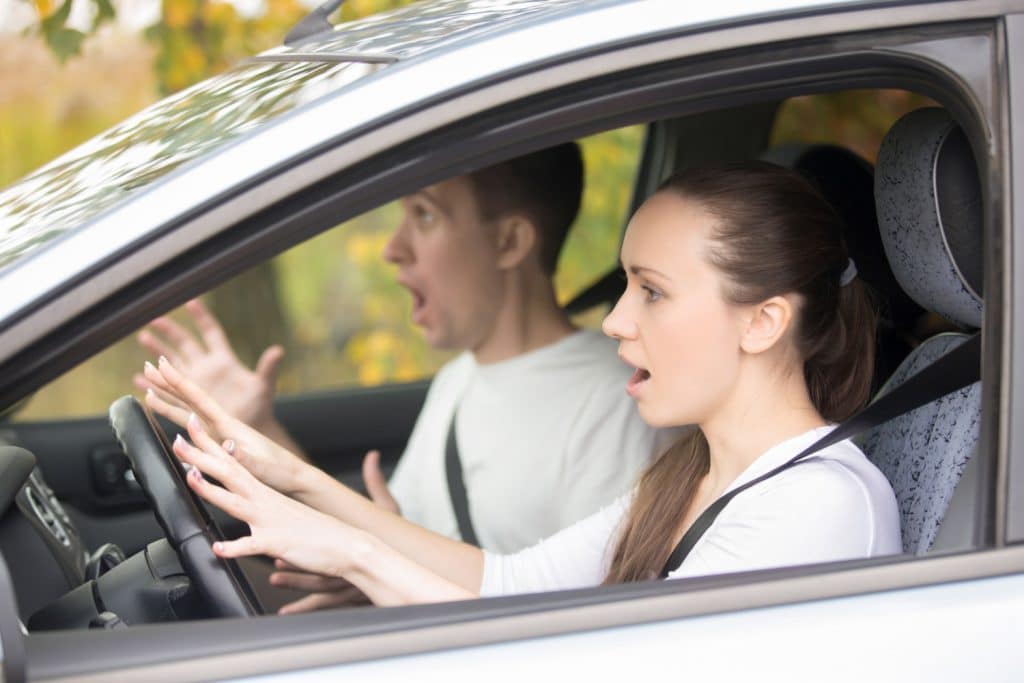What Causes Anxiety while Driving?

Driving-related anxiety is a common problem with mild to severe effects. While driving phobia doesn’t have a particular identifiable cause, many biological and environmental factors are associated with this problem. And although people with anxiety disorder are more likely to experience panic attacks, driving has the potential to cause risk-based anxieties, especially if you’re not adequately trained. However, this doesn’t have to be the case.
As Australia’s leading driving school, LTrent is committed to creating the best drivers in the country. Our mission is to offer quality driver training that provides you with the necessary skills to manage your fears and survive on the road.
Common Causes of Anxiety while Driving
A Recent Accident
The leading cause of panic attacks while driving is the experience of a recent car accident. In fact, many people experience phobia-related symptoms after being involved in a crash. This may trigger various anxiety reactions such as phobias, acute stress disorder, post-traumatic stress disorder (PTSD), and adjustment disorders.
Specific Phobias
The most common types of specific phobias include;
- Agoraphobia: This is when someone fears crowds, tunnels, open spaces, or other situations that make them uncomfortable while driving. Agoraphobia often increases the risk of driving phobias, and it can lead to avoidance of settings that feel threatening.
- Claustrophobia: This refers to the irrational fear of driving in confined spaces. Some people with claustrophobia may experience a severe panic attack in enclosed spaces, while others have mild anxiety.
- Dystychiphobia: Generally, this is the fear of accidents. Some people with dystychiphobia try to avoid driving in places that increase the risk of accidents.
Family and Friends
People within your social network can influence how you feel about driving. If either of your parents or a close friend are incredibly cautious drivers, it’s expected that you will internalise their concerns.
What are the Symptoms of Driving Related Anxiety?
Those who experience anxiety when driving exhibit varying symptoms, including;
- Avoid driving at night or in situations that increase the danger
- Unsure of their driving skills and often feel unsafe when driving
- Take longer routes to avoid challenging roads
- Find excuses not to have to drive
How to Cope with Driving Related Anxiety
- When dealing with a driving-related phobia, the most important thing is first to understand the primary cause of your anxiety. This will help you develop an appropriate coping plan to reduce the symptoms.
- Experiment with relaxation techniques to help reduce anxiety and stress. The most effective ones may include deep breaths, autogenic training, guided imagery, and progressive muscle relaxation.
- Find a mental health professional to assess and advise diagnosis or treatment for your condition. Moreover, take advantage of the numerous online resources that offer additional information about the treatment and management of driving anxiety.
Let LTrent Help You Reduce Anxiety Today
Anxiety can be terrifying if it catches you while you’re driving. But the good news is that it is treatable and manageable. Honing your driving skills is one of the ways you can boost your confidence hence reducing anxiety while on the road. Please contact us at LTrent Driving School to enroll in our driving courses to equip you with superior driving skills to help you cruise comfortably on the Australian roads.